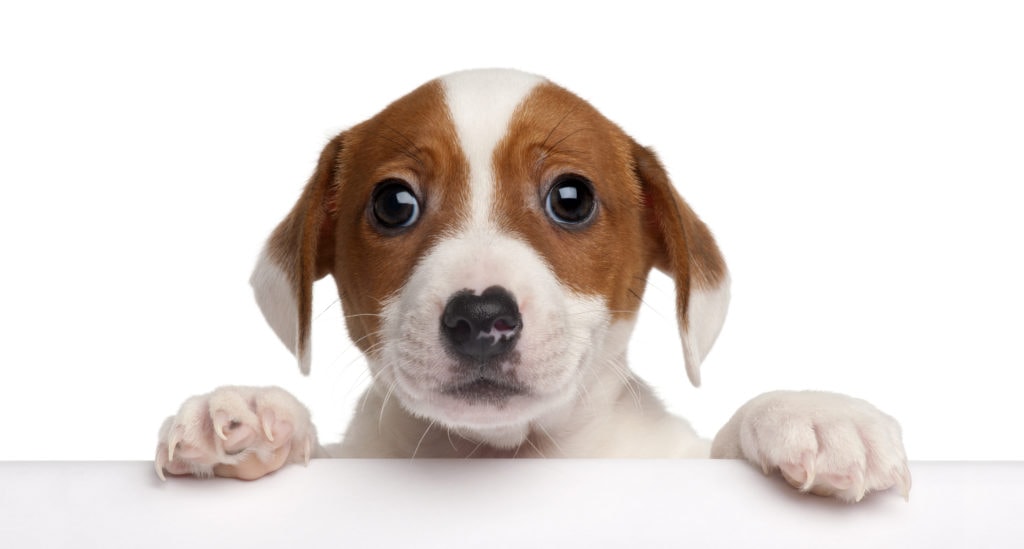In 2015, a new sitcom on NBC premiered called Unbreakable Kimmy Schmidt. It portrayed a young woman abducted by a cult and kept in a bunker for 15 years. She had absolutely no life experience, and everything in life – things that ordinary people take for granted – had to be learned. Luckily for the character, she went through her journey blissfully ignorant of the daily life experiences that normal humans encounter.

Many of our puppies are kept in a proverbial bunker, too. And in this incidence, humans are blissfully unaware of what they are doing (or not doing) to their puppies. Too many people think that the absolute, most important thing when you bring home a puppy at eight weeks is training. This is important, but it is not the most important thing. In fact, you could skip training altogether, including potty training, or put it off because that could be done anytime. What can’t be put off for a young puppy is socialization.
What is socialization?
Many people think that socialization is merely getting a puppy used to other puppies and dogs, but that is only a minuscule part of it. Socialization is getting your puppy out of their bunker, your home, and getting the dog used to everything that they might experience in adult life. And I mean just about everything.
Time is wasting.
When it comes to socialization, you have limited time. The socialization period is thought to end anywhere from 12-16 weeks of age. Those first several months are crucial because puppies have this happy-go-lucky sliver of time when little actually bothers them. They are incredibly social, and, in most puppies, fear is non-existent. Once this period ends, the socialization window closes permanently. Any social problems that arise after this require behavior modification, which can be a lot more involved.
Get your puppy out of the bubble.
As a certified professional dog trainer (CPDT-KA), I tell my clients to get your puppy outside and away from home. Let your canine experience the world. People, places, things that move, different surfaces, body handling, dogs, skateboards going by, an outdoor market, bikes, men with beards, screaming children, people going in and out of doors at a plaza … and so on and so on. The sky’s the limit, and you want the dog to experience as much as it can. A famous behaviorist named Dr. Ian Dunbar once proclaimed that a “puppy needs to meet 100 strangers before the age of 16 weeks.”
Use lots of treats.
We talk to our dogs all the time and think they understand us, but in reality, they do not understand English or any other language for that matter. The best way you can tell a puppy or dog that everything is okay is to give it a treat or several of them. In your socialization escapades, make sure you bring loads and loads of treats in a treat pouch. Everything in the above list of experiences should always be followed up immediately with some sort of goodie. I can’t stress this enough. You are basically telling the pup, “It’s okay.”
When can socialization backfire?
There is a downside to socialization. There are those pesky little things called genetics and past experiences. Just like people, genetics can come into play in all sorts of ways. I see with my clients’ puppies that some of them have fear in their genetic makeup. So if you bring one of these dogs to a place like Boxi Park and the dog is overwhelmed, you could end up negatively sensitizing these dogs. For dogs like this, socialization might be as benign as a romp through the neighborhood or inviting a few friends over to the house. With these dogs, go slow and use lots of treats. Equally, if the puppy has had early and past negative experiences before you have adopted him, going slow would also be optimal.
My dog is now older than 16 weeks. What happens if I’ve missed the socialization period?
All is not lost, but all you can really do is modify behavior. Behavior modification should be done positively and force-free, using lots of good treats. It is similar to socialization, but you have to plan ahead, keep your distance from certain triggers, and be much more methodical. Older puppies and adolescent dogs are less resilient.
Socialization lets our dogs experience the world we live in, and unlike Kimmy Schmidt, our dogs won’t necessarily be blissful when they move through life if they miss it. So pop the bubble; get your little one out in the open.


